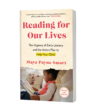Kids love a good story and, when we parents take the time to teach them, can appreciate the stories behind how words come into existence. That history brings spelling to life, makes teaching time more fun, and helps answer the perpetual question of why many words aren’t spelled the way they sound. Plus, stories make spellings stick in memory better than just staring at or copying words.
Here’s a quick list that explains the origin of spellings from karaoke and hangry to squawk and Achilles tendon. As you read the descriptions below, see if you can identify which category each of these words fits into. Then review the answers at the end of this post.
1. Absorption. English swallows spellings from other languages, especially where food is concerned. Quiche, pizza, tortilla, anyone? Over time and with instruction kids can recognize that words derived from certain places tend to spell sounds a certain way. Such as French-derived words using ch for /sh/, as in chalet, chauffeur, and chivalry.
2. Compounding. Putting two independent words together to form a new word is the most universal method of creating more complex words across languages. But the meanings of some pairings are more transparent than others. Think doorbell versus hogwash. When kids recognize that a rattlesnake is a snake that rattles, they have a better shot at spelling it right than if they approached it letter by letter.
3. Imitation. The spellings of some words, “onomatopoeias,” are influenced by the sound of the item or action they refer to. Think of comic book favorites like, boom, pow and splat or other examples, like hiss, ping, and whack. Some examples like cuckoo have been present with various spellings since Middle English.
4. Naming. English takes names and turns them into words, too. Such “eponyms” include Leotard, hypnosis, and Mary Janes, along with thousands more. “Proprietary eponyms” includes words like kleenex, post-it, crockpot, and breathalyzer. They were born of brand names that got so popular that their names came to stand in for the whole product class.
Creating words from people’s names is particularly prevalent in medicine, where diseases, symptoms, and tests are often named after their discoverers. And more than 350 additional medical terms are derived from literary character names. (Fun fact: Some physicians argue against the use of eponymous distinctions, driven by a desire to better reflect the collective nature of medical discovery and to develop more clear scientific nomenclature for patients’ benefit.)
5. Abbreviation. Collections of initials, or “acronyms,” can be either pronounced letter by letter, like CNN, or as single words, like NASA (National Aeronautics and Space Administration) or GOAT (greatest of all time). Words can also be shortened by dropping off the end, such as adorbs (adorable) and rando (random).
6. Errors. Once a spelling goes viral, it’s hard to change it, not because it’s any more “correct” than an alternative spelling but because it’s more popular. Even mistakes have become conventional spellings because printing and distribution gave them wings. Dord, a misspelling, went unchallenged in the Oxford English Dictionary as a synonym for density. Expediate, invented when a politician misspelled expedite in the 1600s, lives on today.
7. Blending. Combining parts of two words to create a new one has given us frenemy (friend + enemy), glamping (glamour + camping), and cosplay (costume + play). Author Lewis Carroll named the blends that he created—like mimsy (miserable + flimsy) and chortle (chuckle + snort)—portmanteaus, after stiff leather suitcases with two compartments.
As for the words listed at the top of the post? Karaoke was imported from Japan and means “empty orchestra.” Hangry is a blend of hungry and angry. Squawk is likely an example of onomatopoeia as its name imitates the harsh abrupt scream of a bird. And Achilles tendon is an eponym derived from the Greek mythology warrior Achilles.
Taking an existing word and giving it a new meaning is yet another way to make a new word. And so, the list goes on.
Do you have other examples? Have you used stories to enliven spelling, reading and writing practice with your kids? Share in the comments.
Pin Me for Reference 📌:

Sources and Further Reading
Say Young Kim, Melvin J. Yap, and Winston D. Goh, “The role of semantic transparency in visual word recognition of compound words: A megastudy approach,” Behavior Research Methods (2018), doi:10.3758/s13428-018-1143-3.
Barry J. Blake, “Sound Symbolism in English: Weighing the Evidence,” Australian Journal of Linguistics 37 (2017): 286–313.
Rodin, Alvin E. and Jack D. Key, Medicine, literature & eponyms: an encyclopedia of medical eponyms derived from literary characters (R. E. Krieger Publishing Company, 1989).
Alexander Woywodt and Eric Matteson, “Should eponyms be abandoned? Yes.” BMJ 335 (2007): 424.
Cousineau, P. and G. Chadwick, The Painted Word: A Treasure Chest of Remarkable Words and Their Origins (Berkeley, California: Cleis Press, 2012).
https://www.npr.org/sections/alltechconsidered/2014/01/16/263096375/researchers-are-totes-studying-how-ppl-shorten-words-on-twitter
http://mentalfloss.com/article/56667/41-brand-names-people-use-generic-terms
https://theweek.com/articles/468355/10-whimsical-words-coined-by-lewis-carroll
https://www.cjr.org/language_corner/chortle.php
http://mentalfloss.com/article/82652/11-words-started-out-spelling-mistakes


